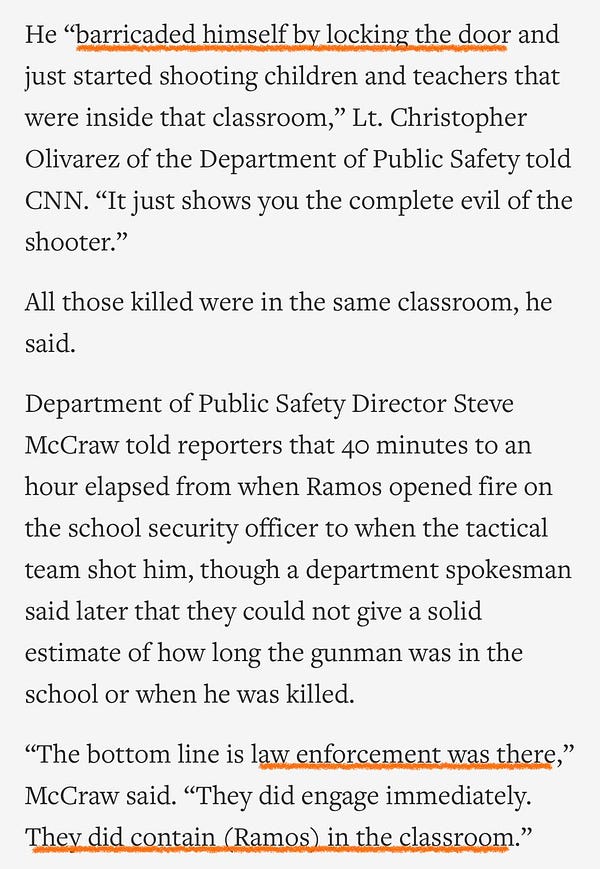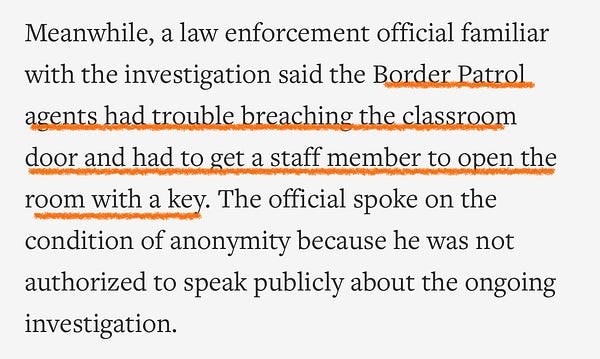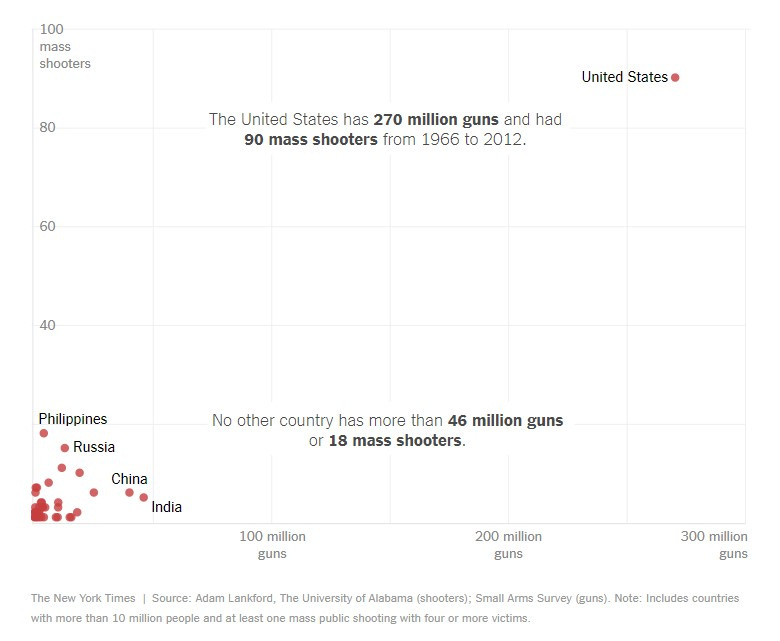ICYMI: “Trump Said to Have Reacted Approvingly to Jan. 6 Chants About Hanging Pence.”
Greg Sargent and Paul Waldman put this NYT story into context:
The rioters focused on Pence because Trump told them that Pence was the reason the election was being allegedly stolen from Trump.
Indeed, in haranguing the rioters on Jan. 6 before they stormed the Capitol, Trump repeatedly cast Pence’s treachery as a form of disenfranchisement and disempowerment of them. He told them in urgent terms that Pence was assisting in an effort to take their country from them, and that they shouldn’t let Pence get away with it.
Happy Thursday!
The latest story about the former president cheering on attacks against his own vice president seems a good occasion to ask once again: How firm is Trump’s grasp on the GOP?
Both the polls and the actual election results are mixed, so you are free to pick your own adventure. But let’s consider this tentative thesis (subject to revision and refutation):
(1) Trump is still the dominant figure in the party, (2) his grip is, however weakening, and (3) there’s an emerging gap between Trumpism and Trump himself.
**
Because there are temptations to fall into wishcasting and data-cherry-picking, we should start with this baseline analysis from our colleague Sarah Longwell:
At this time, there is no moving past Mr. Trump. He has remade the Republican Party in his image, and many Republican voters now crave his particular brand of combative politics.
In races across the country, Republicans who have won Mr. Trump’s endorsement mention it constantly. Even those who didn’t win his endorsement still mention him constantly. Mr. Trump might not have endorsed them, but they all endorse him.
Indeed in Pennsylvania, Trump-endorsed election denier Doug Mastriano easily won the GOP primary for governor. J.D. Vance rode Trump’s blessing to the GOP Senate nomination in Ohio; Herschel Walker easily won Tuesday’s primary for Senate in Georgia. Marjorie Taylor Greene got more than 70 percent of the vote in her primary. And election deniers have won elections around the country.
As Sarah observes, even in contests where Trump’s anointed candidates have struggled, other GOP candidates stumble and tumble over themselves to offer praise for the disgraced ex-president.
But what happened this week in Georgia was . . . not nothing.
Tuesday’s election was an old-fashioned ass-whooping; voters overwhelmingly repudiated Trump’s Big Lie in races that amounted to referenda on TFG’s central obsession. It also exposed the limitations of Big Lie politics. Georgia Gov. Brian Kemp beat Trump’s candidate by more than 50 points; while Trump Enemy Number One, Georgia Secretary of State Brad Raffensperger, defeated his Trumpian challenger and avoided a runoff.
As Josh Kraushaar notes, “Tuesday’s Southern slate of primaries demonstrated that where there’s a Republican will to take on former President Trump, there’s a way to win.”
Trump’s losses also extended down-ballot:
Trump’s candidate for Georgia attorney general, John Gordon, won just about one-quarter of the GOP vote. Even Trump's picks for wide-open House races lagged behind the competition: Vernon Jones, the self-proclaimed “Black Donald Trump,” finished second in Georgia’s 10th District primary and is headed to a runoff against Republican Mike Collins. Physician Rich McCormick held a 2-to-1 edge over his Trump-endorsed rival Jake Evans in the 6th District; that contest is also headed to a June runoff.
Trump’s Georgia shellacking followed the defeat of his picks for governor in Idaho and Nebraska, where the Republican Governor’s Association also rallied around not-crazy alternatives.
Those races — and especially Georgia — also highlighted the increased willingness of major Republican figures to raise the stakes in their defiance of Trump.
Chris Christie openly mocked the failure of what he called “DJT’s vendetta tour,” while Mike Pence spiked the football by campaigning for Kemp on election eve.
Kraushaar sees “one critical lesson for Republicans from Tuesday’s results”:
When outside groups spend money in primaries to support more-mainstream candidates, it often works. The Republican Governors Association spent $5 million to boost Kemp’s prospects, taking no chances as he faced a Trump-backed rival. That was well more than the $2.5 million that Trump himself spent on behalf of Perdue. Such establishment support didn’t taint Kemp in the eyes of conservative Georgia Republicans, as some GOP strategists feared, but rather helped him get his message out early and often.
**
Of course, it’s possible that these are all false signals. Trump remains preternaturally popular among Republicans, and candidates continue making pilgrimages to Mar-a-Lago to beg the favor of the Orange God King. GOP state conventions are becoming ever-more cultish.
But the counterpoint to Trumpian triumphalism/fatalism comes from Henry Olsen, which is interesting because, at one time, Olsen was rather aggressively Trump-curious, offering tortured defenses of the former president.
But now he argues: “Donald Trump seems to be losing his grip on the GOP.” Olsen cites several data points:
An NBC News poll conducted in October 2020 showed that a majority of GOP voters said they supported Trump first over the party. Its May poll shows the situation reversed, with 58 percent saying they back the party first.
That difference matters, as the April Echelon Insights Verified Voter Omnibus poll shows. Eighty-four percent of those who say they back Trump first want him to run again in 2024, compared with only 39 percent who back the party first. Seventy-four percent of Trump supporters say they would definitely or probably back Trump if he did run again, compared with only 26 percent of party-first Republicans. Indeed, 50 percent of party-first Republicans say they would vote for another Republican in the primaries against the former president. The more these voters move away from blind support of Trump, the more open they become to abandoning him altogether.
Olsen also cites last weekend's presidential straw vote in Wisconsin:
Florida Gov. Ron DeSantis beat out former President Donald Trump in a new Republican poll that saw the Wisconsin conventioneers pick whom they want to run to receive the GOP presidential nomination in 2024.
DeSantis received a plurality win with 38% of the vote, while the former president took home 32%, according to the poll conducted by WisPolitics.com.
While Trump remains popular in the GOP, Olsen argues that “it’s clear he’s no longer invulnerable.”
It’s easy to see how this decline continues as the year progresses.
Trump-backed candidates could lose more contested primaries, and other Republicans could gain stature as they make names for themselves as fighters for conservative and populist values.
There will always be a segment of Republicans for whom Trump is the be-all and end-all.
But defeated Pennsylvania Senate candidate Kathy Barnette spoke for many Republicans when she said, “MAGA does not belong to Donald Trump. … It was Donald Trump who shifted and aligned with our values.” Rising numbers of Republicans appear to be reaching the same conclusion.
**
This raises yet another question.
It turns out that the hard-core Big Lie vote is only around 30-35 percent of the Republican electorate.

So, in 2024, will voters separate support for the Big Lie from support for Donald Trump himself?
The problem, of course, is that the Big Lie is inseparable from Trump, because he has drawn the line himself.
To support Trump means supporting the Big Lie.
Rejecting the Big Lie, means breaking up with Trump.
Tuesday’s vote made it clear that this is no longer automatically fatal in the GOP.
Exit take: The future of the Republican party will not be progressive, centrist, traditional conservative, neoconservative, Reagan-Ryan conservative, or even Never Trump. It is far more likely to be Trumpism without Trump.
Is that an improvement? Discuss among yourselves.
Is the gun debate hopeless?
The professor emeritus sums up JVL’s argument in yesterday’s Triad:

On balance, I think this is probably right. Yesterday, I wrote (with a similar sense of futility) that “a nation that was not shocked into action by the massacre of innocents at Sandy Hook is unlikely to be moved by the latest horror.”
But…
Laws (and culture) make a difference, and other countries have, in fact, “fixed” the gun problem — or at least the problem of mass shootings:
And, even here, there are gun control laws that would make a difference.
Red flag laws (David French makes a great case here.)
Raising age for gun purchases
Banning high-capacity magazines
Banning bump stocks
Universal background checks
A few years back Nicholas Kristof noted how safety measures/laws had dramatically reduced automobile-related deaths. “What would a public health approach look like for guns if it were modeled after cars?” he asked. It would include:
Actual experience also shows that laws can make a difference:
All of this is perfectly reasonable. It’s also important to recognize two political realities:
(1) the GOP’s refusal to consider any realistic gun laws is nearly absolute, but
(2) several measures continue to enjoy widespread public support.
Strong majorities of Americans still back common-sense measures. Here’s a new POLITICO/Morning Consult poll conducted entirely after the shooting in Uvalde:
Requiring background checks on all gun sales: Eighty-eight percent strongly or somewhat support; 8% strongly or somewhat oppose. Net approval: +80
Creating a national database with info about each gun sale: Seventy-five percent strongly or somewhat support; 18% strongly or somewhat oppose. Net approval: +57
Banning assault-style weapons: Sixty-seven percent strongly or somewhat support; 25% strongly or somewhat oppose. Net approval: +42
Preventing sales of all firearms to people reported as dangerous to law enforcement by a mental health provider: Eighty-four percent strongly or somewhat support; 9% strongly or somewhat oppose. Net approval: +75
Making private gun sales and sales at gun shows subject to background checks: Eighty-one percent strongly or somewhat support; 11% strongly or somewhat oppose. Net approval: +70
**
Some more suggestions from a Bulwark reader, (who asked that his name be withheld.)
I’m an avid firearms enthusiast a NRA life member since I was 16. I support more restrictions however and they will affect me. Here are some ideas I have never heard discussed.
Instead of trying to ban sales of “assault weapons” with all the definition challenges that made the Clinton AWB pretty much a moot point – defining features were tweaked and the basic firearm platform continued to sell . . .
Amend the National Firearms Act of 1934 (NFA) which outlawed fully automatic weapons outside of stringent special NFA licensing of same.
•Add to the NFA controls – magazine-fed, centerfire semi-auto rifles/carbines (this does sweep up some traditional hunting rifles with AKs and AR’s but not that many)
•Add to the NFA controls – rifle caliber pistols (AK pistols and AR pistols have been a hot commodity for years among the law abiding and the criminal gangs). “Rifle caliber” is not that hard to legally define in the gun world and there could be a mechanism to append a named caliber list the ATF publishes)
•Those two bullet points reflect a more easily defined class of firearms than previous attempts.
•All the good people who feel they must own one can; they just have to go through some pretty rigorous ATF screening and licensing then have to secure their NFA firearm from access to anyone not named in the registration.
•We’re never going to get rid of all the tens of millions of these anyway.
•Those who retain them without NFA licensing – are committing a felony. Enforce that.
•Create a channel for liquidating specimens to a LEO entity and qualify for a state or federal tax deduction of say, “a thousand bucks”. Most of them aren’t worth that. This worked pretty well for full auto weapons and “sawed off” shotguns back in the day.
Exit take: Failure to act is not inevitable. It’s a choice. And it means that there will be more mass shootings. More dead kids. And that’s a choice too.
Cheap Shots
Appalling.



WTF?











When Texans were literally freezing to death last year, Cruz went to Cancun. Now, in the aftermath of our children being gunned down, both Cruz and Abbott are heading for the NRA Convention, as featured speakers, while Cornyn suddenly remembered a scheduling conflict because he has to be in D.C. for "personal" reasons....
They all know that the outrage will die down with both the media and citizens in the coming days and weeks. They are banking on the fact that no one will feel compelled to vote them out of office by the time that opportunity presents itself.
This problem will not be solved unless and until voters decide to make it a priority when choosing who to vote in and who to vote out.
Texas may be another 2-4 election cycles away from turning blue, but many of us here are working towards that very eventuality. It's a cause that Americans around the country should support in whatever way they can, because once Texas' 38 electoral votes go blue, it will go a very long way towards defeating trumpism and political minority rule in D.C.
It seems wrong to talk about anything but American mass murder right now. There has been a lot of talk about American decadence. Could anything be more decadent than accepting with a shrug the slaughter of children? And accepting racially motivated terror?